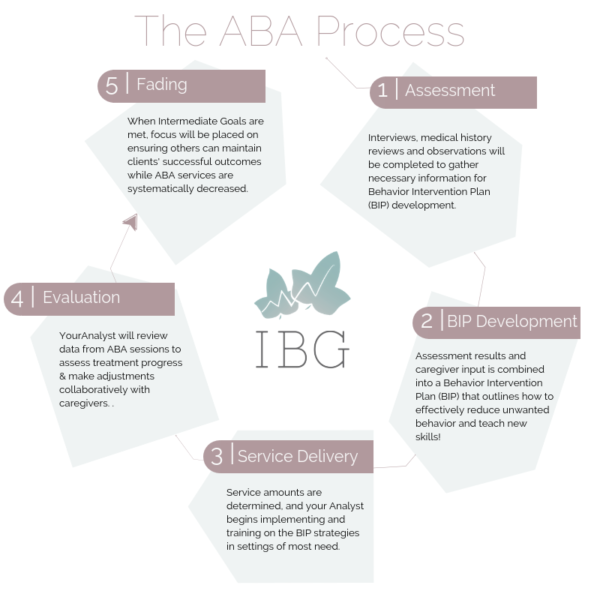What Is ABA?
Applied Behavior Analysis is a therapeutic service that uses the science of behavior in real-world settings to change behaviors in meaningful, productive ways. ABA is widely considered the #1 treatment for individuals diagnosed with Autism Spectrum Disorders, and is funded by most major Health Insurance Plans.
Research has shown that the science of behavior can be used to modify behaviors in laboratory settings however, those results were not realistic to use in our normal, “imperfect” lives. After substantial additional research, it has been proven that the science of behavior can be applied in real life settings with real people to modify behaviors, which gave rise to the field of ABA.
ABA services are provided by Board Certified Behavior Analysts (BCBA) who use their expertise to develop Behavior Intervention Plans (BIP), outlining safe and effective ways to reduce problematic behaviors and teach appropriate skills to replace these behaviors. The BCBA trains all members of the clients’ support team to properly use ABA strategies during and outside of therapy appointments, empowering them to obtain a safe, productive, and normal lifestyle without the ongoing need of ABA support.


About ABA Providers
When receiving ABA services, you may work with providers who have various titles or acronyms. Hearing these titles may be confusing, so here is some clarification:
1 | BCBA, Board Certified Behavior Analyst
- Education | Master’s degree & Board certification
- Governing Board | Behavior Analyst Certification Board (BACB)
- Maintaining Credential | Receive continuing education units (CEU’s) through BACB-approved trainings.
- Responsibilities | Develop behavior intervention plans (BIP), and train others to follow. BCBA’s will conduct assessments to assist in developing the BIP, oversee and train service delivery, provide small amounts of direct ABA services, analyze and graph data to show results of services, and provide supervision to Board Certified Assistant Behavior Analysts (BCaBA), RBT’s, and students in ABA programs. BCBA’s are the providers you go to for any ABA treatment concerns and changes.
2 | BCaBA, Board Certified Assistant Behavior Analyst
- Education | Bachelor’s degree & Board certification
- Governing Board | Behavior Analyst Certification Board (BACB)
- Maintaining Credential | Receive continuing education units (CEU’s) through BACB-approved trainings & maintain ongoing supervision from an approved supervising BCBA.
- Responsibilities | Same as BCBA, plus receive monthly supervision from an approved BCBA supervisor.
3 | RBT, Registered Behavior Technician
- Education | High school diploma & BACB-approved RBT training course
- Governing Board | Behavior Analyst Certification Board (BACB)
- Maintaining Credential | Receive continuing education units (CEU’s) through BACB-approved trainings.
- Responsibilities | Provide direct ABA services under the supervision of a BCBA or BCaBA. May also assist the BCBA/BCaBA in behavior assessments, graphing and data analysis.
4 | BT, Behavior Technician
- Education | High school diploma
- Governing Board | N/A
- Maintaining Credential | N/A
- Responsibilities | Provide direct ABA services under the supervision of a BCBA or BCaBA.

